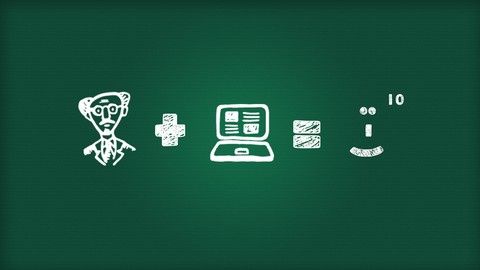Before diving into skill sets, it is vital to understand the nature of the tech industry itself. Technology is not static—new programming languages, tools, methodologies, and frameworks emerge constantly. Keeping pace often means integrating ongoing learning into your routine and embracing a mindset that welcomes transformation. The sector is broad, encompassing roles ranging from software development and data analysis to cybersecurity, product management, artificial intelligence, cloud architecture, and beyond.
Modern tech teams are increasingly cross-functional, blending diverse areas of expertise. Professionals might collaborate with UX designers, DevOps engineers, project managers, data scientists, and marketers, all working toward a shared goal. To thrive in such environments, you must hone a combination of abilities—hard skills that address the technical requirements of the job, and soft skills that facilitate collaboration, communication, and problem-solving.
Core Technical Skills
Technical skills are often the foundation of any tech career. These capabilities form the primary qualifications for landing a job, demonstrating your ability to execute the responsibilities laid out in a role’s description. While the exact technical proficiencies you need will depend on the specific area you focus on, some universal technical aptitudes stand out as valuable across the board.
Programming Languages and Coding Proficiency
For most technology roles, coding is a cornerstone skill. Even if you are not pursuing a full-time development job, having a fundamental understanding of programming concepts can set you apart. Start with languages that align with your career goals:
A. Python: Widely used in data science, artificial intelligence, web development, automation, and scripting.
B. JavaScript: Integral for front-end web development, increasingly relevant in back-end services via Node.js, and essential for creating interactive user interfaces.
C. Java: A staple in enterprise development, Android applications, and large-scale systems.
D. C++/C#: Common in systems programming, embedded devices, game development, and large-scale enterprise environments.
E. Go (Golang): Popular for building scalable, cloud-native services.
F. Ruby, PHP, Swift, and Kotlin: Useful in specialized domains like web development, iOS applications, and certain server-side frameworks.
Understanding Data Structures and Algorithms
Data structures and algorithms form the backbone of efficient programming. Mastering these concepts allows you to optimize code, improve performance, and solve problems more effectively. This knowledge is crucial for passing technical interviews and excelling in roles that require complex problem-solving. Some fundamental topics include:
A. Arrays, Linked Lists, and Hash Maps
B. Trees, Graphs, and Tries
C. Sorting and Searching Algorithms
D. Time and Space Complexity Analysis
Familiarity with Development Tools and Frameworks
The ability to leverage frameworks and development tools can significantly enhance productivity. Tools streamline workflows, simplify complex tasks, and facilitate collaboration. Some popular ones include:
A. Web Frameworks: React, Angular, Vue.js, Ruby on Rails, Django, and Spring.
B. Mobile Frameworks: React Native, Flutter, and SwiftUI.
C. Version Control: Git and platforms like GitHub, GitLab, or Bitbucket for tracking changes and collaborating.
D. CI/CD Tools: Jenkins, Travis CI, CircleCI, or GitHub Actions to automate testing and deployment.
Understanding of Cloud and Infrastructure
As cloud computing grows increasingly critical, knowledge in this domain is indispensable. Modern applications often run on platforms like Amazon Web Services (AWS), Microsoft Azure, or Google Cloud Platform. Understanding how to deploy, manage, and scale systems in the cloud environment, as well as familiarity with virtualization and containerization technologies like Docker and Kubernetes, is a major differentiator. Key concepts include:
A. Cloud Architecture and Services (IaaS, PaaS, SaaS)
B. Serverless Computing and Functions-as-a-Service
C. Load Balancing and Auto-Scaling
D. Infrastructure as Code (IaC) with tools like Terraform or CloudFormation
Cybersecurity and Data Privacy Awareness
With data breaches and cyber threats on the rise, a fundamental understanding of cybersecurity best practices is essential. While you do not need to be a security expert for every role, having basic security literacy ensures you can protect systems and data. Key areas include:
A. Encryption and Secure Communication Protocols
B. Authentication and Authorization Mechanisms
C. Secure Coding Practices
D. Compliance and Data Protection Regulations (e.g., GDPR)
Key Soft Skills for Tech Professionals
While technical acumen is vital, overlooking soft skills can limit career advancement. Employers seek candidates who can collaborate, communicate effectively, and adapt to changing circumstances. Here are the top soft skills that often shape a successful tech career.
Effective Communication
Clear communication is critical, whether you are explaining technical concepts to non-technical stakeholders, drafting documentation for future developers, or conveying project status updates. Strong communicators avoid jargon when talking to business teams and know how to share ideas succinctly with colleagues. Good communication fosters trust, prevents misunderstandings, and aligns team members toward a common goal.
Problem-Solving and Critical Thinking
Tech roles inherently involve troubleshooting complex issues. Approaching problems methodically, breaking them down into smaller components, and proposing logical solutions are key skills. Critical thinking helps you analyze situations, weigh potential courses of action, and choose the most effective one. This mindset ensures you can handle unexpected challenges and innovate when faced with new technologies or constraints.
Adaptability and Continuous Learning
The tech world moves rapidly. A framework you mastered last year might be outdated today. Embracing this rapid change and maintaining an eagerness to learn new technologies keeps your skillset relevant. Continual learning can involve taking online courses, attending workshops, participating in hackathons, or following tech influencers and publications to stay informed. When you show that you can adapt to new conditions, employers gain confidence in your ability to handle the industry’s volatility.
Collaboration and Teamwork
Modern tech projects are rarely solo endeavors. Collaboration within cross-functional teams requires the ability to respect diverse viewpoints, merge different areas of expertise, and reach common ground. Open-mindedness, empathy, and a willingness to give and receive feedback help foster a harmonious work environment. A team player not only contributes technically but also encourages others, making the entire group more efficient and creative.
Time Management and Prioritization
Tech professionals often juggle multiple tasks, from coding new features to debugging issues and meeting tight deadlines. Efficient time management helps maintain productivity and reduce stress. Learning how to prioritize tasks based on impact, complexity, and deadlines allows you to focus on what matters most. Effective prioritization prevents burnout and ensures that you deliver consistent, high-quality work.
Creativity and Innovative Thinking
Though we often think of tech jobs as logical and analytical, creativity plays a significant role in pushing the boundaries of what is possible. Whether it is designing a user-friendly interface, identifying a clever optimization strategy for a database query, or envisioning a new product feature that solves an unmet need, creativity helps differentiate average professionals from outstanding ones. The tech landscape rewards those who think outside the box to discover better ways of working.

The Importance of Domain Knowledge
While broad technical and soft skills set a solid foundation, gaining expertise in a particular domain can supercharge your career prospects. Domain knowledge involves understanding the specific industry you are working in, whether that is healthcare, finance, retail, entertainment, or any other sector. Tailoring your skillset to address the unique challenges of that domain can make your contributions more impactful. For example:
A. Healthcare Tech: Knowledge of healthcare regulations, electronic health records (EHR) systems, and patient data privacy requirements.
B. Financial Tech (FinTech): Familiarity with banking standards, payment gateways, blockchain, and financial compliance frameworks.
C. E-Commerce and Retail: Insights into inventory management, shopping cart optimization, user experience design for online shoppers, and payment integrations.
D. Gaming Industry: Understanding of graphics rendering, latency optimization, multiplayer server architectures, and user retention strategies.
By combining your technical expertise with domain-specific insights, you can create solutions that address real problems more effectively, ultimately making you a more valuable asset to any organization.
Navigating Emerging Technologies
Staying abreast of emerging technologies helps future-proof your career. Embracing cutting-edge tools, frameworks, and paradigms can position you as a forward-thinking professional. Some current trends worth keeping an eye on include:
A. Artificial Intelligence (AI) and Machine Learning (ML): As AI and ML become more accessible, professionals who understand how to train models, interpret results, and integrate AI features into applications are in high demand.
B. Data Science and Big Data Analytics: Handling large volumes of data, using data mining tools, and interpreting insights from analytics dashboards can guide strategic decisions and product enhancements.
C. Blockchain and Distributed Systems: Beyond cryptocurrency, blockchain enables secure and transparent record-keeping, smart contracts, and decentralized applications.
D. Quantum Computing: Though still early in its adoption, quantum computing promises to revolutionize computations. Professionals who develop a basic understanding now can lead the charge when it becomes more mainstream.
E. Internet of Things (IoT): With connected devices proliferating, skills related to IoT security, sensor data analysis, and edge computing architectures are increasingly valuable.
Do not feel compelled to master all emerging areas at once. Instead, choose trends that align with your career goals, remain curious, and keep learning to prepare for the future of technology.
How to Develop and Enhance Your Skills
Knowing which skills to cultivate is one thing, but effectively acquiring and strengthening them is another. There are several strategies you can use to ensure that your skill development efforts bear fruit.
Formal Education and Certifications
Enrolling in courses at universities or specialized tech institutes can provide structured learning. Certifications, offered by organizations like Amazon (AWS), Microsoft (Azure), Google (Cloud Platform), or the Project Management Institute (for PMP), can validate your expertise and build credibility with employers. While certifications are not always mandatory, they signal a commitment to your craft.
Online Learning Platforms
With the abundance of online resources—tutorials, interactive courses, and coding challenges—you can learn at your own pace. Platforms like Coursera, Udemy, edX, and Codecademy offer courses taught by industry experts. Many have hands-on projects, quizzes, and real-world simulations that reinforce knowledge. Regular practice is essential, and building side projects can bring theoretical concepts to life.
Participating in Bootcamps and Workshops
Attending intensive coding bootcamps or weekend workshops can accelerate learning by immersing you in a focused environment. These programs often involve collaborative projects, pair programming, and mentorship. Completing a bootcamp can be especially helpful if you are switching careers or need to upskill quickly.
Mentorship and Networking
Connecting with experienced professionals can provide invaluable guidance. Mentors can help you identify skill gaps, recommend learning resources, and share personal stories of triumphs and failures. Networking, whether through online forums, LinkedIn groups, or local tech meetups, offers opportunities to discuss industry trends, discover job openings, and form meaningful professional relationships.
Contributing to Open Source
Open-source projects give you a platform to refine your skills in a collaborative environment. Not only can you practice coding, but you also learn about version control, code reviews, documentation standards, and community management. Contributing to open-source efforts exposes you to different problem-solving techniques and coding styles, broadening your perspective and skillset.
Building a Personal Portfolio
Practical experience is crucial. By creating a personal portfolio of projects, you can demonstrate your capabilities to employers and clients. A well-rounded portfolio might include a variety of projects:
A. Web or Mobile Applications: Show how you turn ideas into functional products.
B. Data Analysis Dashboards: Illustrate your ability to interpret data and present insights visually.
C. Machine Learning Models: Provide evidence of your capacity to tackle complex, data-driven problems.
D. Infrastructure Setup: Highlight your understanding of cloud deployment, load balancing, and automated pipelines.
Your portfolio can be hosted on platforms like GitHub, GitLab, or a personal website. This hands-on approach lets you apply newly acquired skills and continuously refine them.

Embracing a Growth Mindset
At the core of building a successful career in tech is the growth mindset—the belief that your abilities can be developed through dedication, hard work, and a willingness to learn from mistakes. Rather than seeing failures as setbacks, consider them learning experiences. Challenges, feedback, and constructive criticism all serve as catalysts for improvement. This attitude encourages resilience, fosters continuous improvement, and drives you toward setting and achieving ambitious goals.
Professionals who view their careers as evolving journeys tend to remain more adaptable and innovative. They embrace continuous learning by exploring new coding languages, experimenting with unfamiliar tools, or contributing to challenging projects. When combined with structured skill development, this mindset transforms you into a future-ready professional.
Preparing for Technical Interviews
Landing a job in tech often involves passing multiple rounds of interviews, including technical assessments. Preparing thoroughly is essential:
A. Algorithmic Practice: Solve coding problems on platforms like LeetCode, HackerRank, or CodeSignal to sharpen your algorithmic thinking.
B. Mock Interviews: Conduct mock sessions with peers or mentors, practicing both technical and behavioral questions.
C. System Design: Gain familiarity with architectural design patterns, scalability strategies, and trade-offs between different technologies.
D. Soft Skill Questions: Prepare to discuss past projects, challenges you overcame, and how you collaborate with team members. Clear communication of your thought process is often as valuable as the solution itself.
The effort you invest in interview preparation pays off by increasing your confidence and improving your chances of securing a desirable role.
Staying Motivated and Avoiding Burnout
The fast-paced nature of the tech industry can sometimes lead to burnout. Long hours, high-pressure environments, and rapid changes in technology can be stressful. Maintaining a balance between work and personal life is crucial to sustaining long-term career growth.
A. Set Realistic Goals: Break larger objectives into achievable milestones. Celebrate small wins along the way.
B. Take Breaks and Vacations: Short breaks can reset your mental energy. Vacations help you return to work refreshed, with a renewed sense of focus.
C. Explore Passion Projects: Engaging in personal projects outside of work can rekindle your love for technology, allowing you to explore interests without the pressure of deadlines.
D. Mindfulness and Health: Exercise, proper sleep, and activities that promote mental well-being are essential. Consider meditation, yoga, or hobbies unrelated to technology to maintain balance.
By safeguarding your well-being, you ensure that you remain productive, creative, and enthusiastic about your career path.
Measuring Your Progress and Setting Long-Term Goals
As you develop and refine your skillset, it is important to periodically assess your progress and set new goals. Consider the following strategies:
A. Regular Self-Assessments: Reflect on what you have learned and identify areas that need further improvement.
B. Constructive Feedback: Seek input from peers, mentors, or managers. Their perspectives can highlight blind spots you might have missed.
C. Benchmarking Against Industry Standards: Compare your skillset to current job postings, industry certifications, and evolving best practices. This helps you stay on track and remain competitive.
D. Long-Term Career Planning: Define where you want to be in 3, 5, or 10 years. Outline the roles you aspire to, the technologies you want to master, and the type of impact you aim to have. Adjust these goals as the industry evolves.
Continual measurement and recalibration of your goals ensure that you grow strategically and remain aligned with your career aspirations.
Leveraging Mentors, Communities, and Professional Associations
Your professional network can play a pivotal role in your career development. Seek out mentors who have walked the path before you. A good mentor can provide advice tailored to your situation, share insider knowledge, and offer constructive feedback.
In addition, participating in professional communities—both online and offline—opens doors to new learning opportunities and potential collaborations. Online forums, Slack groups, LinkedIn communities, and local tech meetups are all valuable resources. For more formal engagement, consider joining industry associations or guilds that offer specialized resources, training discounts, and access to exclusive events. These organizations help you stay current, expand your network, and learn best practices from industry veterans.
Cultivating Leadership Skills
As you progress in your tech career, you may naturally assume leadership responsibilities, either by mentoring junior team members, leading a project, or eventually managing a team. Effective leadership in technology involves more than just technical competence:
A. Empathy and Emotional Intelligence: Understand team members’ perspectives and offer support. Great leaders create environments where people feel valued and heard.
B. Delegation and Trust: Recognize when to hand off responsibilities and empower others to take ownership of tasks.
C. Vision and Strategic Thinking: Guide the team with a long-term vision. Leaders who see the bigger picture and communicate it effectively ensure that daily work aligns with broader organizational goals.
D. Adaptability to Change: Inspire others to embrace change. A leader who can pivot with industry shifts and encourage the team to learn new skills keeps the organization future-ready.
Cultivating leadership qualities not only advances your career but also magnifies your impact on the organization and the industry at large.
Conclusion
Succeeding in the tech industry involves more than simply mastering a few programming languages. It requires a well-rounded skillset that includes hard technical abilities, strong communication, problem-solving prowess, adaptability, continuous learning, and the resilience to navigate constant change. By focusing on these areas, keeping up with emerging technologies, and leveraging educational opportunities, mentorship, and professional communities, you can position yourself as a valuable asset in any technology-driven organization.
A tech career thrives on curiosity, growth, and innovation. As you refine your abilities, remember that the journey is ongoing. Every project you undertake, every problem you solve, and every skill you learn brings you one step closer to becoming the well-rounded, forward-thinking professional the industry needs. By approaching your career development strategically and embracing a growth mindset, you will not only remain competitive but also find greater fulfillment and satisfaction in your work.










